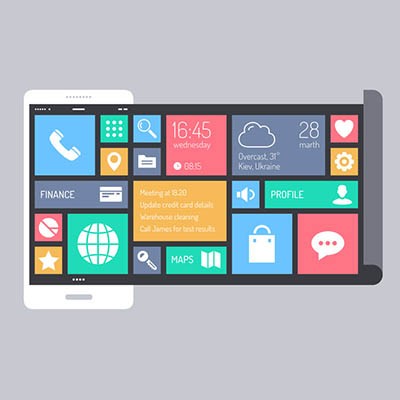EZ MSP Blog
If you asked your average person whether they are okay with their personal information being taken and used by businesses, you’d probably come across quite a bit of dissent. Ironically, it seems that people will give it right over via social media programs, but you are beginning to see some pushback when using apps. WhatsApp, the messaging app owned by Facebook, that is known for end-to-end encryption, has told users that they will soon be forced to share their personal data with Facebook.
Anyone that has used a computer is familiar with the following scenario. A friend tells you a story about an app that is really useful or fun so you take a chance and download it. After you download and fire it up, you get a pop up asking if you want to allow notifications from that app. You blast “yes” just to get to the application and sometime later, you are asleep or working and you get a notification from the company behind the app you downloaded. Then you get another one, and another, and since you’ve blasted “yes” on 25 little pop-ups, you are getting a constant flow of notifications that you could completely do without.
Have you ever tried to open up a document and have your computer default to a program that you didn’t intend, or quite frankly, never use? This can often happen for common file types like PDFs. Thankfully, Windows 10 makes it easy to change the default applications for your organization’s file types. We’ll walk you through how it’s done.
Mobile devices have countless uses, all of which enable users to get the most out of them. But what if all of your efforts at finding the best applications for the job are wasted on finding a fraudulent app on the Google Play Store? Believe it or not, the Google Play Store has its fair share of malware available for download in all types of disguises. Here are a few tips to help you avoid installing them in the first place.
You can never know whether or not that app you just downloaded to your smartphone can expose your data or identity to risk. While Google Play and the iTunes store certainly put efforts into ensuring that users can safely browse their app stores, it’s unlikely that they can find every single malicious app out there before it infects someone’s device. Therefore, you need to consider the following measures to ensure that you don’t put your business at risk by downloading unsecure apps.
Collaboration is a key part of business today, which has led to many developers and providers entering the business of collaboration. These developers are in deep competition with each other, each trying to update their offering to be better than the others’. Recently, Facebook Workplace, Slack, and Google’s Gmail each received collaboration-boosting updates.
 Implementing proper IT solutions is challenging for the average SMB, and it’s difficult without the aid of a proper IT department. Organizations that can’t afford a full in-house IT department sometimes resort to less savory methods of managing their technology, which can be dangerous for business continuity, data storage compliance, and security.
Implementing proper IT solutions is challenging for the average SMB, and it’s difficult without the aid of a proper IT department. Organizations that can’t afford a full in-house IT department sometimes resort to less savory methods of managing their technology, which can be dangerous for business continuity, data storage compliance, and security.
 Mobile exploits are just as common as those found on legitimate operating systems like Windows, but many people just don’t understand this simple fact. However, this hasn’t stopped some folks from being cautious when using their devices. The latest exploit making the rounds, which takes advantage of the iPhone’s Siri or Android’s Google Now, will leave you speechless.
Mobile exploits are just as common as those found on legitimate operating systems like Windows, but many people just don’t understand this simple fact. However, this hasn’t stopped some folks from being cautious when using their devices. The latest exploit making the rounds, which takes advantage of the iPhone’s Siri or Android’s Google Now, will leave you speechless.
 If you use Google Chrome as your browser of choice, you know that Chrome’s extensions provide a certain level of versatility. Basically, they’re add-ons to your browser, which can perform a number of functions. They’re mostly used for enriching your browsing experience or adding new features to your browser that might not be available on other platforms. Here are four useful browser extensions to help you get the most out of Chrome.
If you use Google Chrome as your browser of choice, you know that Chrome’s extensions provide a certain level of versatility. Basically, they’re add-ons to your browser, which can perform a number of functions. They’re mostly used for enriching your browsing experience or adding new features to your browser that might not be available on other platforms. Here are four useful browser extensions to help you get the most out of Chrome.









